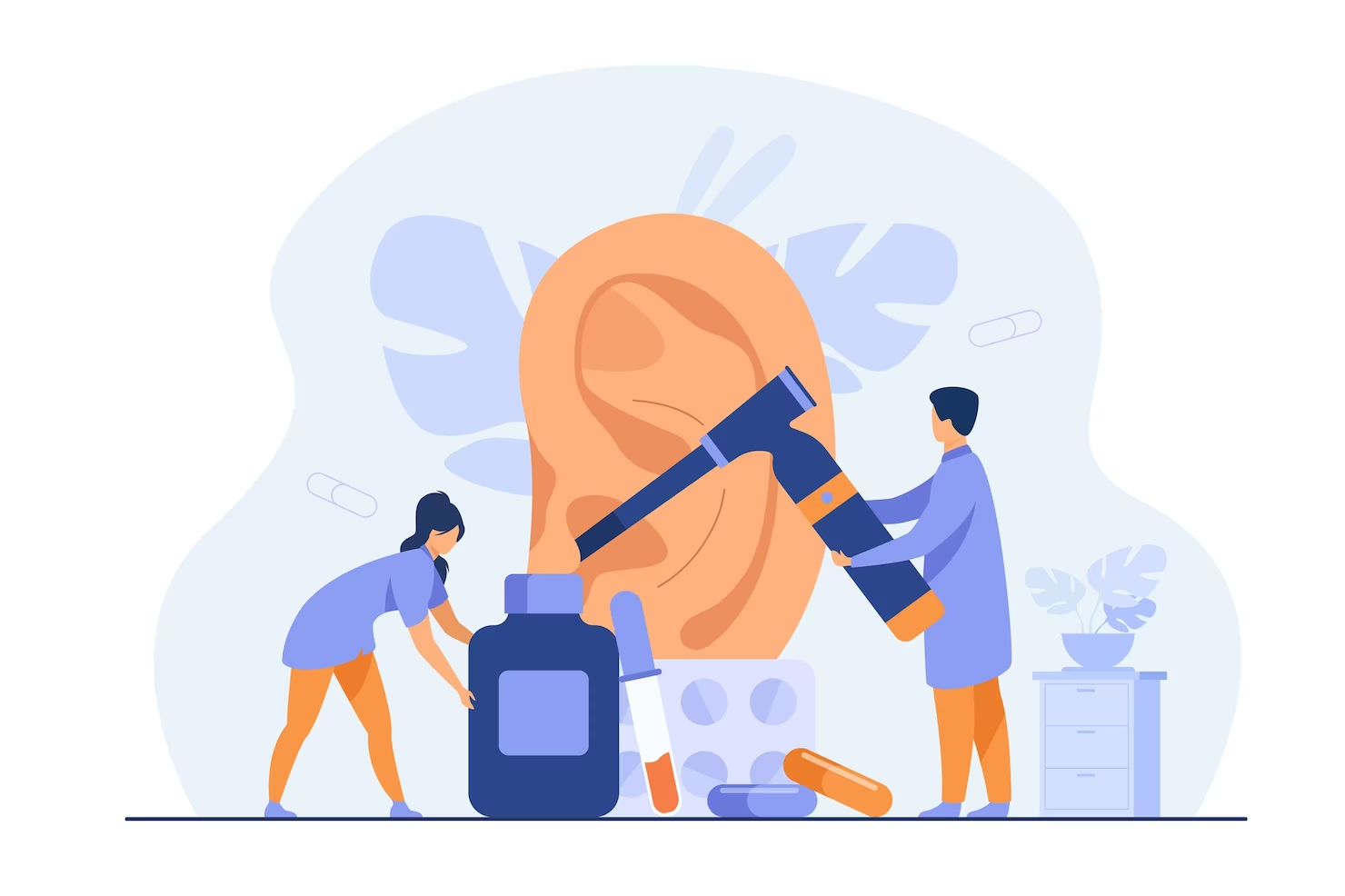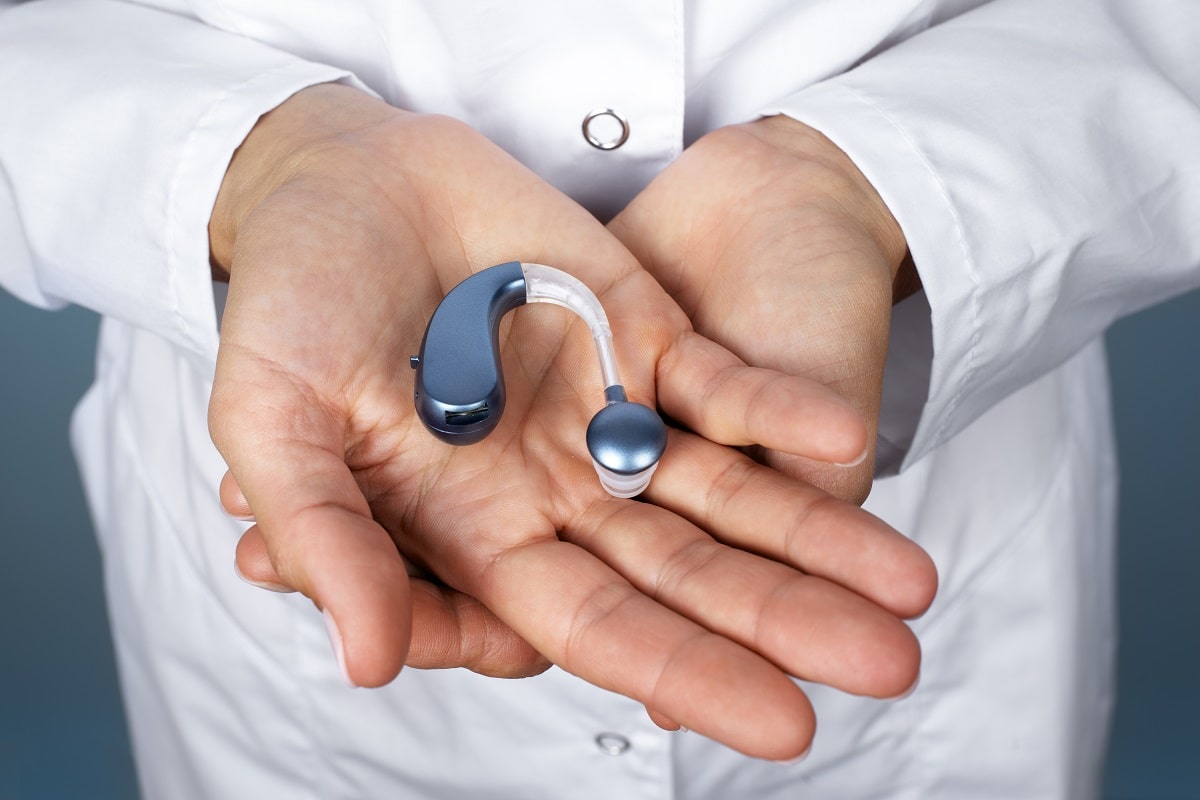Understanding the causes and solutions for when hearing aids no longer help enough
Hearing aids are important tools that have changed the lives of millions of people with hearing loss by letting them take part in talks and listen to sounds. But there may come a time when hearing aids don't help as much as people want them to. In this piece, we'll look at some of the reasons why hearing aids may no longer work and talk about ways to deal with this problem.
Possible reasons why hearing aids might no longer work
How hearing loss gets worse: Hearing loss is often a problem that gets worse over time. Hearing aids can help people with low to moderate hearing loss at first, but if the hearing loss gets worse, the hearing aids may not be able to help anymore. If your hearing loss has gotten much worse, it's possible that your current hearing aids aren't enough to meet your needs anymore.
Changes in your hearing needs: If your listening environment, how much you talk, or your lifestyle changes, you may need different features or settings that your present hearing aids don't offer. For instance, if you spend a lot of time in noisy places or need to hear words more clearly, you may need hearing aids with features like advanced noise reduction or directional microphones.
Unresolved Hearing Problems: Hearing aids can help people hear better, but they may not be able to solve all hearing problems. Even with hearing aids, it can be hard to understand words in noisy places or tell certain sounds apart. In these situations, it may be necessary to use more hearing aids or different ways to talk.
Untreated or unidentified medical conditions: Sometimes hearing aids don't work because of untreated or unidentified medical conditions. For example, if you have an ear infection that isn't handled, a blockage in your ear canal, or changes in your middle ear, it can affect how well your hearing aids work. It is important to get a medical checkup from an ENT expert or an audiologist to find and treat any underlying health problems.
Inadequate Device Maintenance: Hearing aids need to be cared for and maintained properly for them to work at their best. If you don't clean your hearing aids regularly, don't repair worn-out parts, or let dirt and earwax build up, it can affect how well they work. To keep your hearing aids working well, you need to see a hearing care professional regularly to have them cleaned and adjusted.
When hearing aids no longer help, there may be other options.
Hearing tests on a regular basis: Regular hearing tests by an audiologist or other hearing care worker are important for keeping track of changes in your ability to hear. If your hearing aids are no longer helping you hear, the first thing you should do is make an appointment for a full hearing evaluation. This will help you figure out what's wrong and look into other options.
Adjustments and reprogramming: Your hearing care professional can look at the way your hearing aids are set up and programmed to see if there are ways to make them work better. They may be able to make small changes to the devices to better fit your changing hearing needs or switch to different programs to make them work best in different listening situations.
Consider Upgrading to Newer Technology: If your present hearing aids are old, upgrading to newer models with newer technology may give you better performance and features. Modern hearing aids often have features like noise-reduction algorithms, directional microphones, and wireless connections that make it easier to hear in noisy places.
Assistive listening devices: In some cases, adding assistive listening devices to your hearing aids can make them work better. Devices like FM systems, loop systems, and personal amplifiers can help people hear better in certain settings, like when they are in a group, listening to a speaker, or watching TV.
Cochlear Implants or Other Solutions: If your hearing loss is serious or profound, or if you still have trouble communicating even with hearing aids, cochlear implants may be a good choice. Cochlear implants are devices that are put in by surgery. They go around the damaged parts of the inner ear and stimulate the auditory nerve directly. This makes it easier to understand words and hear sounds.
Communication Strategies and Training: A speech-language pathologist or a communication training school can help you learn how to communicate better. In addition to hearing aids, you can improve your ability to communicate by learning to read lips, use visual cues, and improve your listening skills.
Conclusion
Hearing aids are very helpful for people who have trouble hearing, but there may come a time when they don't help as much as they used to. Understanding what might be making them less effective and looking for good answers can help deal with these problems effectively. When hearing aids no longer help, it's important to get regular hearing tests, make adjustments and re-program them, upgrade to newer technology, and think about other options like cochlear implants or assistive listening devices. To find the best answers for your changing hearing needs, you need to get help from hearing care professionals, audiologists, and other hearing healthcare specialists. Remember that with the right help and answers, you can keep improving your hearing and get involved in the world.
Hearing aids are important tools that have changed the lives of millions of people with hearing loss by letting them take part in talks and listen to sounds. But there may come a time when hearing aids don't help as much as people want them to. In this piece, we'll look at some of the reasons why hearing aids may no longer work and talk about ways to deal with this problem.
Possible reasons why hearing aids might no longer work
How hearing loss gets worse: Hearing loss is often a problem that gets worse over time. Hearing aids can help people with low to moderate hearing loss at first, but if the hearing loss gets worse, the hearing aids may not be able to help anymore. If your hearing loss has gotten much worse, it's possible that your current hearing aids aren't enough to meet your needs anymore.
Changes in your hearing needs: If your listening environment, how much you talk, or your lifestyle changes, you may need different features or settings that your present hearing aids don't offer. For instance, if you spend a lot of time in noisy places or need to hear words more clearly, you may need hearing aids with features like advanced noise reduction or directional microphones.
Unresolved Hearing Problems: Hearing aids can help people hear better, but they may not be able to solve all hearing problems. Even with hearing aids, it can be hard to understand words in noisy places or tell certain sounds apart. In these situations, it may be necessary to use more hearing aids or different ways to talk.
Untreated or unidentified medical conditions: Sometimes hearing aids don't work because of untreated or unidentified medical conditions. For example, if you have an ear infection that isn't handled, a blockage in your ear canal, or changes in your middle ear, it can affect how well your hearing aids work. It is important to get a medical checkup from an ENT expert or an audiologist to find and treat any underlying health problems.
Inadequate Device Maintenance: Hearing aids need to be cared for and maintained properly for them to work at their best. If you don't clean your hearing aids regularly, don't repair worn-out parts, or let dirt and earwax build up, it can affect how well they work. To keep your hearing aids working well, you need to see a hearing care professional regularly to have them cleaned and adjusted.
When hearing aids no longer help, there may be other options.
Hearing tests on a regular basis: Regular hearing tests by an audiologist or other hearing care worker are important for keeping track of changes in your ability to hear. If your hearing aids are no longer helping you hear, the first thing you should do is make an appointment for a full hearing evaluation. This will help you figure out what's wrong and look into other options.
Adjustments and reprogramming: Your hearing care professional can look at the way your hearing aids are set up and programmed to see if there are ways to make them work better. They may be able to make small changes to the devices to better fit your changing hearing needs or switch to different programs to make them work best in different listening situations.
Consider Upgrading to Newer Technology: If your present hearing aids are old, upgrading to newer models with newer technology may give you better performance and features. Modern hearing aids often have features like noise-reduction algorithms, directional microphones, and wireless connections that make it easier to hear in noisy places.
Assistive listening devices: In some cases, adding assistive listening devices to your hearing aids can make them work better. Devices like FM systems, loop systems, and personal amplifiers can help people hear better in certain settings, like when they are in a group, listening to a speaker, or watching TV.
Cochlear Implants or Other Solutions: If your hearing loss is serious or profound, or if you still have trouble communicating even with hearing aids, cochlear implants may be a good choice. Cochlear implants are devices that are put in by surgery. They go around the damaged parts of the inner ear and stimulate the auditory nerve directly. This makes it easier to understand words and hear sounds.
Communication Strategies and Training: A speech-language pathologist or a communication training school can help you learn how to communicate better. In addition to hearing aids, you can improve your ability to communicate by learning to read lips, use visual cues, and improve your listening skills.
Conclusion
Hearing aids are very helpful for people who have trouble hearing, but there may come a time when they don't help as much as they used to. Understanding what might be making them less effective and looking for good answers can help deal with these problems effectively. When hearing aids no longer help, it's important to get regular hearing tests, make adjustments and re-program them, upgrade to newer technology, and think about other options like cochlear implants or assistive listening devices. To find the best answers for your changing hearing needs, you need to get help from hearing care professionals, audiologists, and other hearing healthcare specialists. Remember that with the right help and answers, you can keep improving your hearing and get involved in the world.


